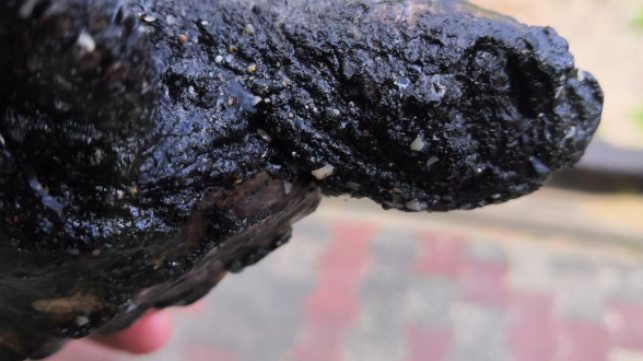Israel Clears Greek Tanker of Suspicion in Oil Spill Investigation

After an inspection at the port of Piraeus, Israel has cleared the Greek tanker Minerva Helen of any connection to the disastrous spill off its Mediterranean coast.
The Minerva Helen was drifting and awaiting orders in the Eastern Mediterranean from February 4-11, about the time frame that the spill is believed to have occurred. Her operator, Minerva Marine, denied any connection with the spill and noted that the vessel was in ballast - without any cargo - at the time of the pollution event. She was not involved in any STS transfer or other activity that could have resulted in a discharge, Minerva said, and a PSC inspection in Cartagena on the 22nd found nothing amiss.
Israeli and Greek inspectors met the vessel in Piraeus on Saturday. After their review, the Israeli Ministry of Environmental Protection cleared the tanker of any wrongdoing.
“Following a thorough, professional and comprehensive inspection carried out by the Environmental Protection Ministry’s inspector and an inspector from the Shipping and Ports Administration, the ship was finally eliminated as the source of the pollution," the ministry said in a statement.
The IMO and Israeli authorities initially identified about 10 vessels that could have been involved in the spill, but on Saturday, the ministry said that it is broadening its investigation to include many others.
"We are continuing the investigation and are committed to doing everything possible to locate the ship that is responsible for polluting the shores of Israel, for the public, nature and animals," said Environment Minister Gila Gamliel in a statement. "We will get where we need to go and use all means until we achieve the goal . . . We all deserve to know who caused harm to animals and the shores of Israel, and we must bring [them] to justice."
In a statement Saturday, Gamliel said that a suspected second slick recently spotted by the Israeli Air Force had been analyzed and found to be benign.
The tar-like spill is likely to be crude oil, not HFO, according to a newly-completed analysis by researchers at Hebrew University. The finding points to a crude tanker as the source vessel, and either an STS transfer accident or a leak as the proximate cause.
Seafood ban
Israel has banned the sale of all domestic Mediterranean-sourced seafood in response to the severe petroleum spill that has affected its western coastline over the past week. The prohibition covers the distribution or marketing of any Mediterranean seafood from waters off Israel, effective immediately.

that matters most
Get the latest maritime news delivered to your inbox daily.
“While so far no evidence has shown any danger arising from fish consumption, out of an abundance of caution some samples have been sent to the Agriculture Ministry’s lab for analysis, to rule out any presence of toxic particles," the health ministry told The Media Line.
According to the Associated Press, some fishermen have ignored the ban and continued to bring in their catch, hoping to sustain a source of income that has already been hit hard by the COVID-19 pandemic.
